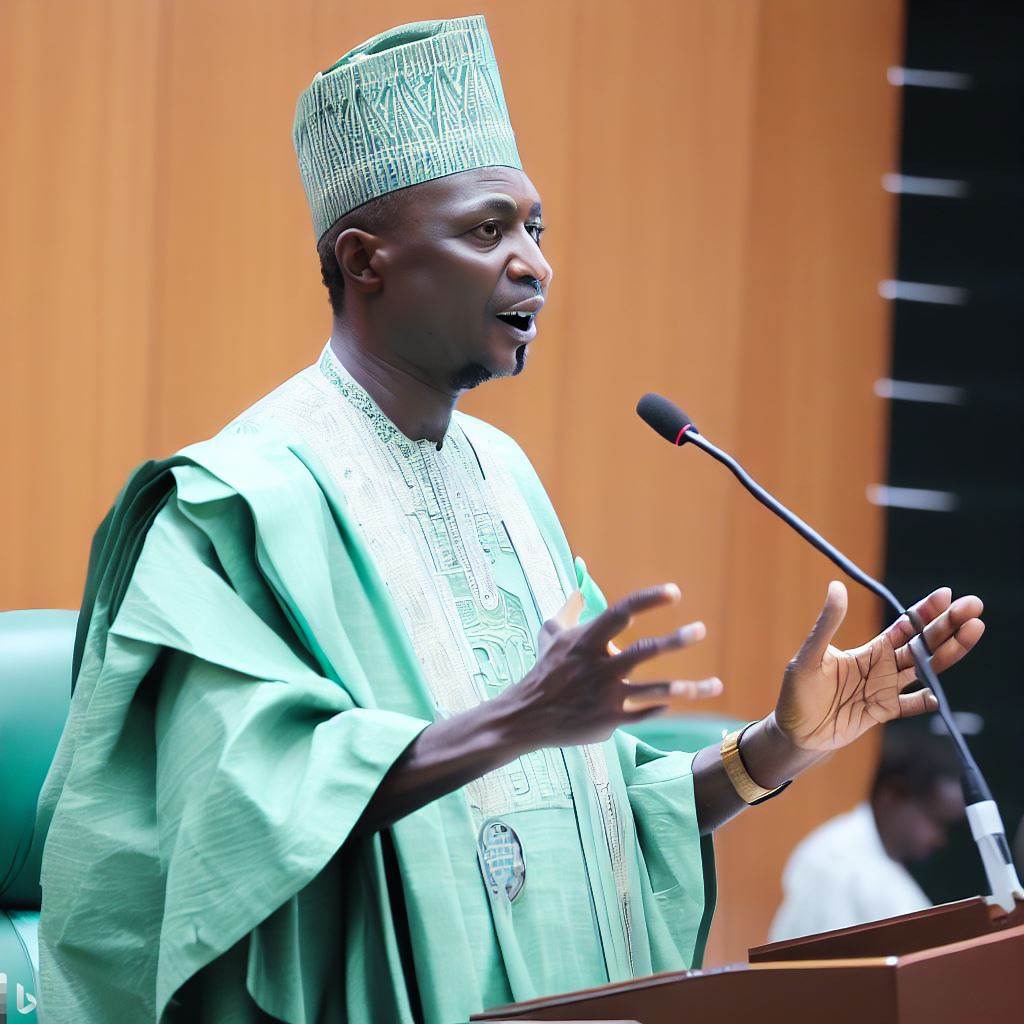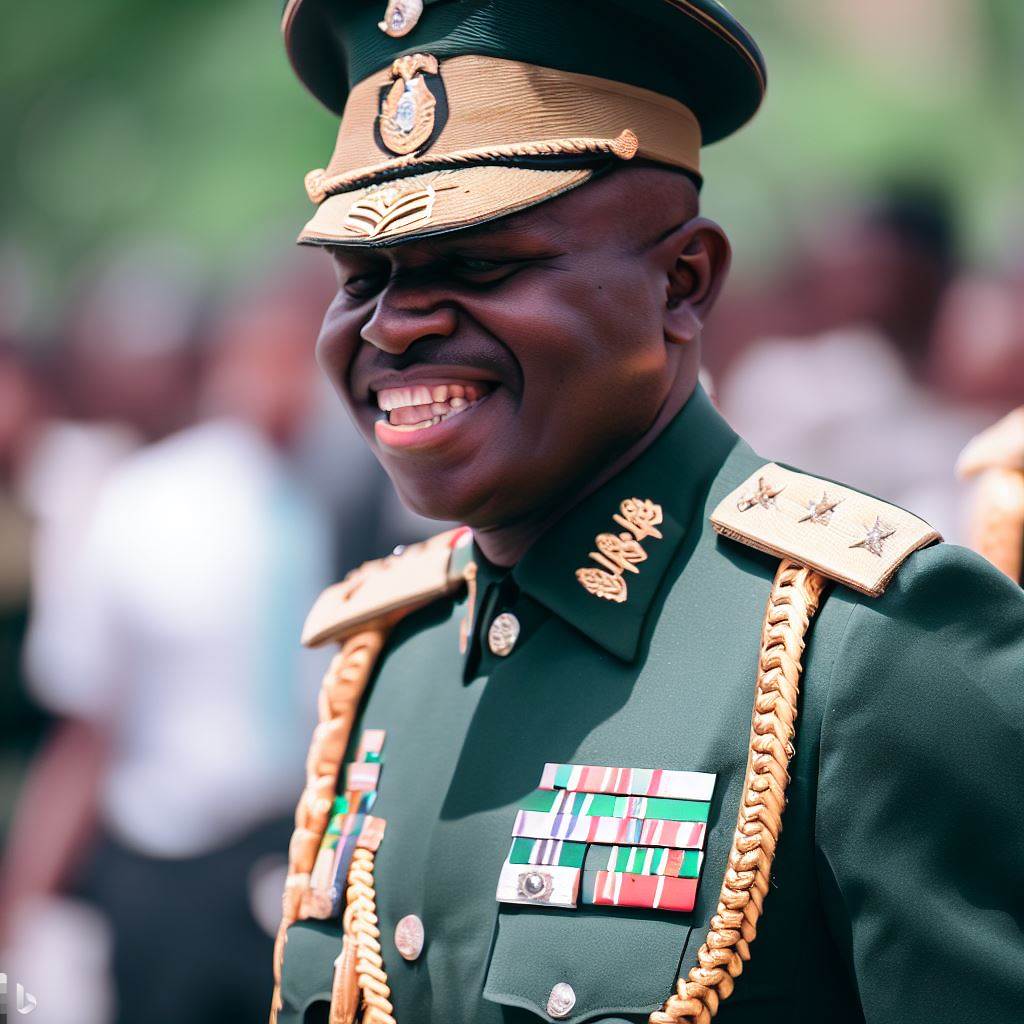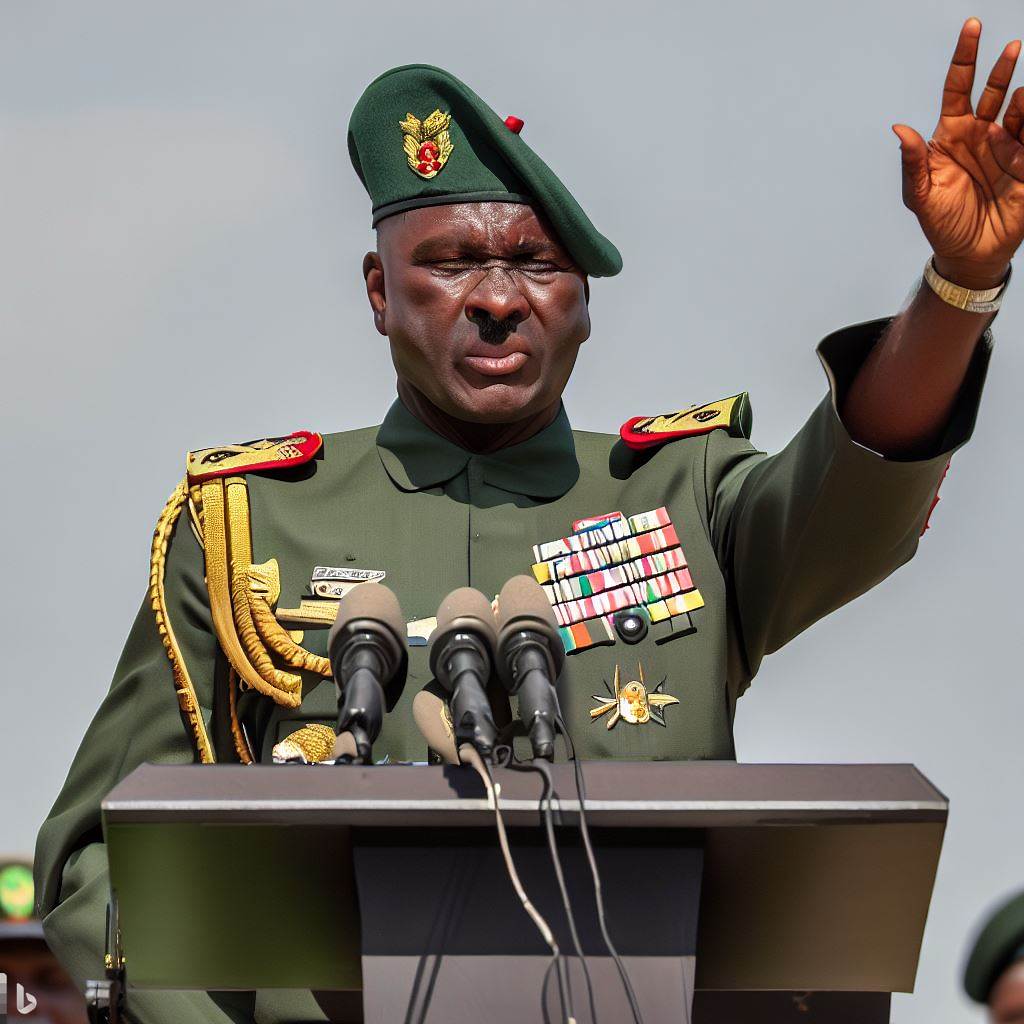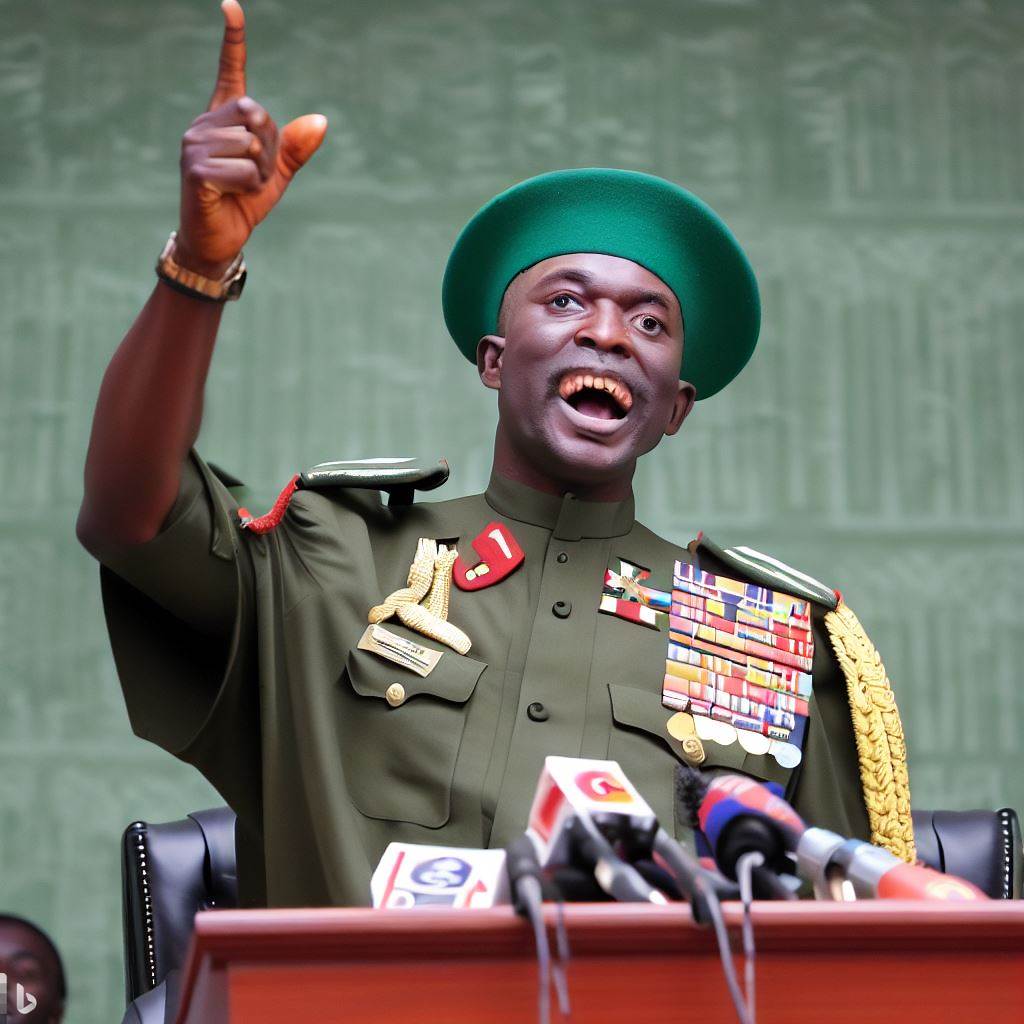Introduction
The Nigerian government is a federal system that is composed of three branches, namely the executive, legislative, and judicial branches.
The government is responsible for ensuring the welfare of its citizens and the development of the country.
However, the success of the government largely depends on the leadership provided by influential leaders. These leaders have the power to shape government policies, influence public opinion, and steer the country towards progress and stability.
Influential leaders are crucial in the Nigerian government as they have the ability to inspire change, introduce new ideas, and foster unity among citizens.
They are responsible for providing a vision for the country and rallying support for government programs and initiatives.
Moreover, influential leaders can help to address social and economic issues, promote peace and security, and enhance the country’s global competitiveness.
Without influential leaders, the Nigerian government would be unable to effectively respond to the needs and aspirations of its citizens.
In this blog chapter, we will review some of the most influential leaders that have shaped the Nigerian government over time. We will analyze their contributions to the country, their leadership styles, and the impact they have had on government policies.
By examining these leaders, we hope to gain a better understanding of how leadership affects the Nigerian government and its people.
Ultimately, we will argue that the quality of leadership provided by influential leaders is critical to the success and development of the Nigerian government.
Read: The Evolution and History of the Government Structure of Nigeria
Sir Abubakar Tafawa Balewa
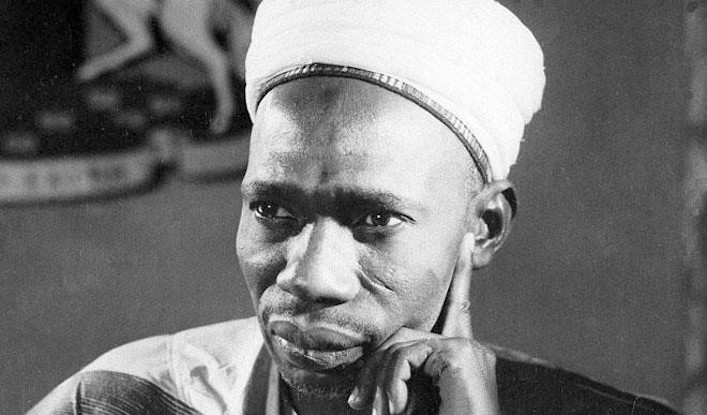
Sir Abubakar Tafawa Balewa was a renowned Nigerian statesman who played an instrumental role in Nigeria’s independence movement.
He remains one of the most influential leaders of the Nigerian government, and his legacy still resonates today. Let’s review the life, career, and achievements of Sir Abubakar Tafawa Balewa.
Early Life and Education
Sir Abubakar Tafawa Balewa was born on December 1912 in Bauchi, present-day Bauchi State, Nigeria. He was a descendant of the Bauchi Emirate, which gave him access to formal education.
Balewa began his early education in a Koranic school before proceeding to a teachers’ college in Katsina. He later attended the London University Institute of Education, where he obtained a Teachers’ Diploma in History.
Political Career and Achievements
Sir Abubakar Tafawa Balewa’s political career began in the 1940s when he joined the Northern People’s Congress (NPC). In 1952, he became Nigeria’s first Minister of Works and later became the Minister of Transport in 1954.
As the Minister of Transport, Balewa initiated the restructuring of the Nigerian Railway Corporation, which was the backbone of Nigeria’s transportation system at the time.
In 1957, Balewa became Nigeria’s second Prime Minister, a position he held until 1966.
During his tenure, he worked towards consolidating Nigeria’s status as an independent nation, promoting unity and economic stability. In 1961, he led Nigeria’s delegation to the United Nations General Assembly, where he delivered a memorable speech that called for Africa’s decolonization.
One of Sir Abubakar Tafawa Balewa’s most significant achievements was his role in Nigeria’s independence movement.
He worked tirelessly towards the country’s independence and is considered one of the founding fathers of modern Nigeria.
Balewa advocated for a united and prosperous Nigeria, where all citizens could enjoy equal opportunities regardless of their religion or ethnicity.
Read: Top 10 Highest Paying Professions in Nigeria: 2023 Edition
Legacy
Sir Abubakar Tafawa Balewa’s legacy remains relevant in Nigeria’s political discourse. He was a symbol of Nigeria’s unity and identity and remains a highly respected figure in the country.
Balewa’s contributions to Nigeria’s independence and his strong stance against colonialism continue to inspire future generations of Nigerian leaders.
In summary, Sir Abubakar Tafawa Balewa’s life and career serve as an inspiration for Nigerian leaders to this day.
His contributions to Nigeria’s independence, his advocacy for unity and economic stability, and his strong stance against colonialism continue to inspire generations of Nigerian citizens.
Sir Abubakar Tafawa Balewa will always be remembered as one of the most influential leaders of the Nigerian government, and his legacy will live on for many years to come.
Read: A Day in the Life of a Nigerian Military Officer
General Yakubu Gowon
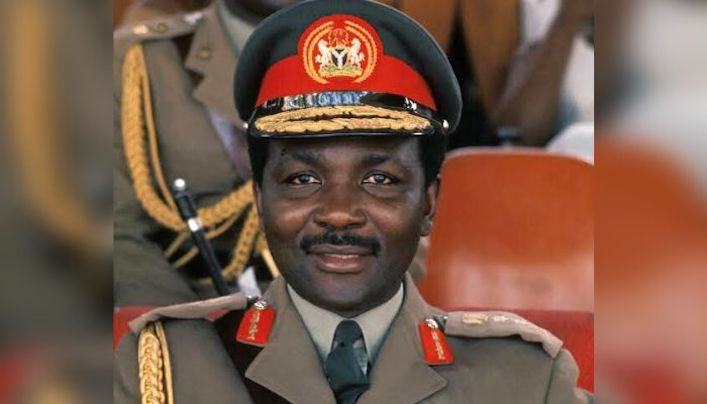
General Yakubu Gowon was a Nigerian military officer who rose to power as the Head of State after a military coup in 1966.
During his regime, he made significant contributions to the Nigerian Civil War which lasted from 1967 to 1970. He played a crucial role in ending the war and in the eventual reconciliation between the warring parties.
Here are some of his other notable contributions
- Economic Policies: General Gowon understood the importance of economic stability in Nigeria. He introduced policies aimed at diversifying the economy and reducing reliance on oil revenues. These policies helped to establish a solid foundation for economic growth.
- Infrastructure Development: General Gowon’s administration embarked on ambitious infrastructure development projects. These included the construction of new roads, bridges, and dams. The projects were aimed at improving transportation and energy infrastructure, and also helping to connect rural areas to urban centers.
- Green Revolution: General Gowon launched the Green Revolution program which aimed at achieving self-sufficiency in food production. The program included measures such as the distribution of seeds, fertilizers, and agricultural machinery to farmers. It helped to increase agricultural production and improve food security in Nigeria.
- International Relations: General Gowon played a key role in promoting Nigeria’s foreign relations. He helped to establish diplomatic relations with several African, Asian, and European countries. He also played a key role in Nigeria’s leadership of the Organization of African Unity.
- Transparency: General Gowon was known for his commitment to transparency and accountability. He introduced measures aimed at reducing corruption in the civil service and public sector. His administration also implemented budgetary reforms aimed at ensuring greater accountability in government spending.
General Gowon’s contributions to Nigeria during his regime were significant. His policies and programs laid a strong foundation for Nigeria’s economic growth and development.
He also helped to promote Nigeria’s foreign relations and played a key role in ending the Nigerian Civil War.
His commitment to transparency and accountability was also commendable, and his leadership style was widely respected.
Even after leaving office, General Gowon has continued to play a key role in promoting peace and stability in Nigeria and Africa as a whole.
Read: The Role of Women in the Nigerian Military
Chief Obafemi Awolowo
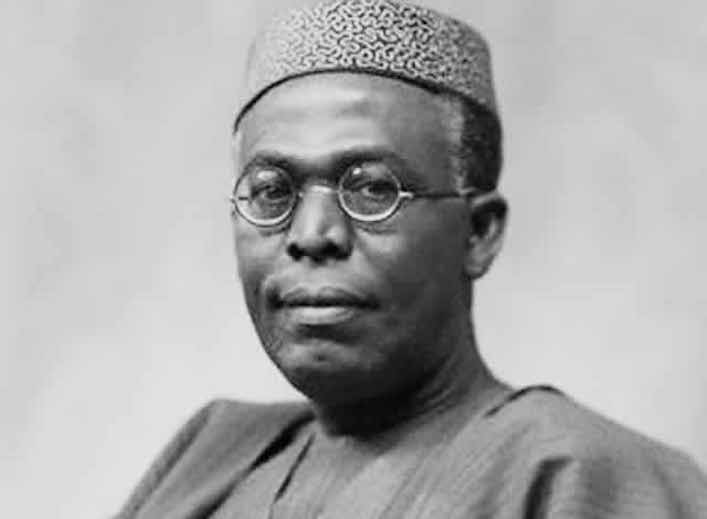
Chief Obafemi Awolowo was a prominent Nigerian leader and a founding member of the Action Group. His contributions to the country, particularly in promoting education and healthcare, remain unforgettable.
Founding member of the Action Group
Awolowo played a pivotal role in Nigeria’s political history as a founding member of the Action Group.
He helped to create the party in 1951 with the aim of promoting economic independence, national integration, and self-governance in the country.
Role in promoting education and healthcare
One of Awolowo’s significant contributions to Nigeria was his advocacy for education and healthcare. He believed that education was a tool for empowering the people and promoting social and economic development.
Thus, he established several free primary schools to increase access to education for all. Similarly, Awolowo implemented several policies and programs that improved healthcare delivery in the country.
Ideological clashes with other leaders
Despite his significant contributions to Nigeria, Awolowo faced several ideological battles with other leaders. For instance, he had a fierce rivalry with Sardauna of Sokoto, who was a prominent northern leader and a member of the rival Northern People’s Congress party.
The rivalry was mainly due to their different approach on Nigeria’s political structure and resource control. Similarly, Awolowo also clashed with Nnamdi Azikiwe, the leader of the National Council of Nigeria and Cameroon.
The ideological differences between the two trailblazers were mainly on the role of traditional rulers in Nigeria’s political system.
In essence, Chief Obafemi Awolowo’s leadership contributed significantly to Nigeria’s development.
His contributions to education and healthcare remain remarkable, and he remains an influential figure in the country’s political history.
Despite his ideological clashes with other leaders, his legacy continues to inspire future generations of Nigerian leaders.
Alhaji Shehu Shagari
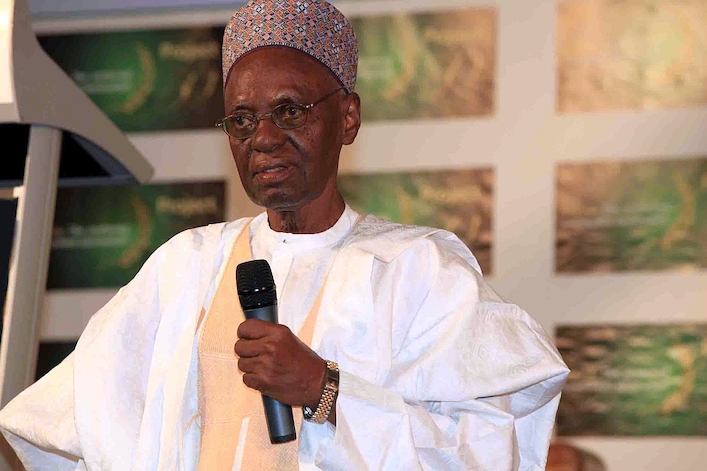
Alhaji Shehu Shagari was the first elected President of Nigeria during the Second Republic. Born in 1925, he received his education in Nigeria and the United Kingdom.
Shagari faced tough economic challenges during his presidency, including inflation and high unemployment rates.
To address these issues, he implemented policies such as the Green Revolution and Operation Feed the Nation, which focused on agriculture and self-sufficiency.
However, his efforts were hindered by a global economic recession and falling oil prices.
In 1983, he was overthrown in a military coup led by General Muhammadu Buhari.
Despite this, Shagari is remembered as a leader who advocated for peaceful coexistence and unity among Nigeria’s diverse ethnic and religious groups.
He passed away in 2018 at the age of 93.
Shagari’s legacy serves as a reminder of the importance of strong leadership in times of crisis and the need for leaders who prioritize the well-being of their citizens above all else.
General Sani Abacha
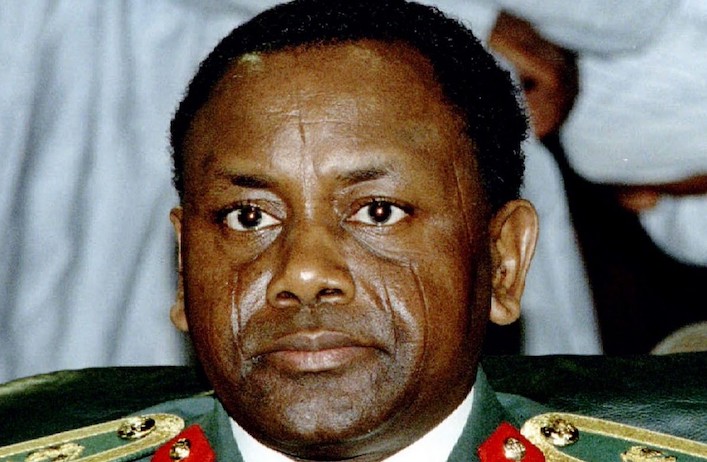
General Sani Abacha was a Nigerian military dictator who ruled from 1993 until his death in 1998. His rule was controversial, marked by human rights abuses and corruption allegations.
However, his era was also associated with economic growth and development in the country.
Controversial Rule as a Military Dictator
- Abacha came into power in 1993 after a military coup that overthrew interim president Ernest Shonekan.
- He dissolved all political parties and made himself the head of state, with absolute control over the country’s affairs.
- He was criticized for his authoritarian rule, which involved the suppression of human rights and political freedom.
- Abacha’s government was known for its brutality, with many activists and opposition figures detained or killed.
- He ordered the execution of Ken Saro-Wiwa, the environmental activist who campaigned against the oil industry in the Niger Delta.
Human Rights Abuses and Corruption Allegations
- Abacha’s regime was characterized by widespread corruption and embezzlement of public funds.
- He reportedly stole billions of dollars from the Nigerian treasury, which were stashed in foreign bank accounts.
- His cronies and family members were also implicated in corrupt practices, which led to the impoverishment of the masses.
- Abacha’s government was accused of rampant human rights abuses, including torture, rape, and extrajudicial killings.
- Several international organizations, such as Amnesty International and Human Rights Watch, condemned his regime’s gross human rights violations.
Economic Growth during his Reign
- Despite his controversial rule, Abacha was able to achieve some significant economic successes during his time in power.
- The oil-rich country experienced a period of economic growth and development, with a GDP growth rate of 7% in 1995.
- He implemented several economic policies that were aimed at stabilizing the economy, reducing inflation, and attracting foreign investments.
- Abacha initiated the establishment of the Debt Management Office, which was tasked with managing the country’s external debt.
- He also created the Petroleum Trust Fund, which was used to finance developmental projects across the country.
In summation, General Sani Abacha’s reign as a military dictator was characterized by controversy, human rights abuses, and corruption allegations.
However, his government also achieved some economic successes, which led to the growth and development of Nigeria’s economy.
Despite his achievements, his legacy is marred by his notorious reputation as a dictator who ruled with an iron fist.
Read: Analyzing The Architect’s Role in Nigeria’s Real Estate
Conclusion
The reviewed influential leaders of the Nigerian government include Nnamdi Azikiwe, Obafemi Awolowo, Sani Abacha, and Olusegun Obasanjo.
It’s important to note that their impact on the Nigerian government and society cannot be overstated.
Azikiwe and Awolowo laid the foundation for modernizing Nigeria, while Abacha’s regime was characterized by oppression and human rights violations.
Obasanjo’s tenure saw improvements in Nigeria’s economy and political stability.
Future leaders can learn from these leaders’ legacies by prioritizing good governance, accountability, and transparency.
They must challenge corruption, promote inclusivity, and prioritize the well-being of the people. The impact of these leaders transcends generations, and it’s vital to learn from their triumphs and failures.

